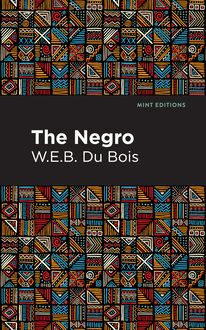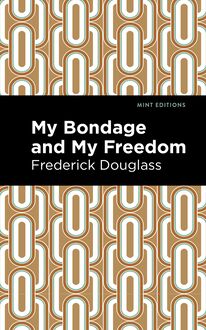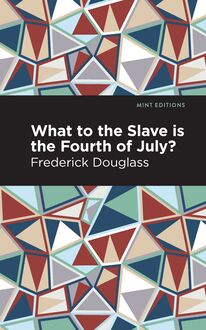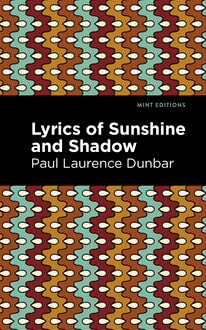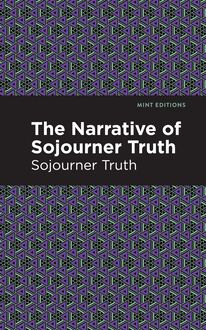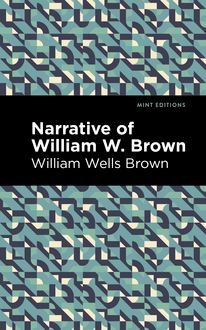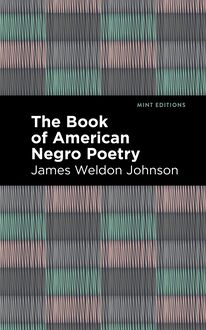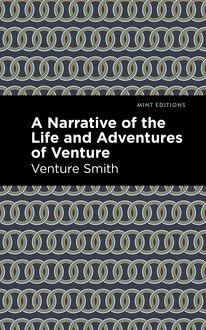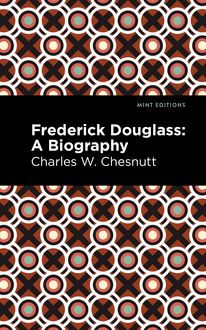-
 Univers
Univers
-
 Ebooks
Ebooks
-
 Livres audio
Livres audio
-
 Presse
Presse
-
 Podcasts
Podcasts
-
 BD
BD
-
 Documents
Documents
-
- Cours
- Révisions
- Ressources pédagogiques
- Sciences de l’éducation
- Manuels scolaires
- Langues
- Travaux de classe
- Annales de BEP
- Etudes supérieures
- Maternelle et primaire
- Fiches de lecture
- Orientation scolaire
- Méthodologie
- Corrigés de devoir
- Annales d’examens et concours
- Annales du bac
- Annales du brevet
- Rapports de stage
La lecture à portée de main
Vous pourrez modifier la taille du texte de cet ouvrage
Découvre YouScribe en t'inscrivant gratuitement
Je m'inscrisDécouvre YouScribe en t'inscrivant gratuitement
Je m'inscrisEn savoir plus
Vous pourrez modifier la taille du texte de cet ouvrage
En savoir plus

Description
Fifty Years and Other Poems (1917) is a collection of poems by James Weldon Johnson. Although less popular than his book God’s Trombones: Seven Negro Sermons in Verse (1927), Johnson’s second poetry collection showcases his talents as a rising star of African American literature. Including some poems that would be featured in The Book of American Negro Poetry (1922), an influential anthology compiled and edited by the poet himself, Fifty Years and Other Poems remains essential to Johnson’s legacy as a leading figure of the Harlem Renaissance. “Fifty Years” opens the collection with an ode to emancipation, a starting point from which millions of men, women, and children were given the opportunity, however fragile it was, to pursue better lives. Rather than give thanks for freedom granted, however, Johnson implores his fellow Black Americans to remain proud, assured that liberty is their hard-earned right: “This land is ours by right of birth, / This land is ours by right of toil; / We helped to turn its virgin earth, / Our sweat is in its fruitful soil.” Hopeful and resilient, Johnson reflects on his own place in this history of struggle, paying particular heed to his status as a poet, his ability to sing despite centuries of violent oppression. In his poem “O Black and Unknown Bards,” he asks “O black and unknown bards of long ago, / How came your lips to touch the sacred fire?” Recognizing the need for a reconciliation between the long tradition of black culture and the overwhelming erasure of his own contemporary artists, Johnson highlights the efforts of those poets such as himself, who “Within [their] dark-kept soul[s], burst into song.” >With a beautifully designed cover and professionally typeset manuscript, this edition of James Weldon Johnson’s Fifty Years and Other Poems is a classic of African American literature reimagined for modern readers.
Sujets
Informations
| Publié par | Mint Editions |
| Date de parution | 11 mai 2021 |
| Nombre de lectures | 0 |
| EAN13 | 9781513295596 |
| Langue | English |
Informations légales : prix de location à la page 0,0350€. Cette information est donnée uniquement à titre indicatif conformément à la législation en vigueur.
Extrait
Fifty Years and Other Poems
James Weldon Johnson
Fifty Years and Other Poems was first published in 1917.
This edition published by Mint Editions 2021.
ISBN 9781513295442 | E-ISBN 9781513295596
Published by Mint Editions ®
minteditionbooks .com
Publishing Director: Jennifer Newens
Design & Production: Rachel Lopez Metzger
Project Manager: Micaela Clark
Typesetting: Westchester Publishing Services
C ONTENTS F IFTY Y EARS T O A MERICA O B LACK AND U NKNOWN B ARDS O S OUTHLAND ! T O H ORACE B UMSTEAD T HE C OLOR S ERGEANT T HE B LACK M AMMY F ATHER , F ATHER A BRAHAM B ROTHERS F RAGMENT T HE W HITE W ITCH M OTHER N IGHT T HE Y OUNG W ARRIOR T HE G LORY OF THE D AY WAS IN H ER F ACE S ONNET F ROM THE S PANISH F ROM THE G ERMAN OF U HLAND B EFORE A P AINTING I H EAR THE S TARS S TILL S INGING G IRL OF F IFTEEN T HE S UICIDE D OWN BY THE C ARIB S EA I. Sunrise in the Tropics II. Los Cigarillos III. Teestay IV. The Lottery Girl V. The Dancing Girl VI. Sunset in the Tropics A ND T HE G REATEST OF T HESE IS W AR A M ID -D AY D REAMER T HE T EMPTRESS G HOSTS OF THE O LD Y EAR T HE G HOST OF D EACON B ROWN “L AZY ” O MAR D EEP IN THE Q UIET W OOD V OLUPTAS T HE W ORD OF AN E NGINEER L IFE S LEEP P RAYER AT S UNRISE T HE G IFT TO S ING M ORNING , N OON AND N IGHT H ER E YES T WIN P OOLS T HE A WAKENING B EAUTY T HAT IS N EVER O LD V ENUS IN A G ARDEN V ASHTI T HE R EWARD J INGLES & C ROONS S ENCE Y OU W ENT A WAY M A L ADY ’ S L IPS A M L IKE DE H ONEY T UNK N OBODY ’ S L OOKIN ’ BUT DE O WL AND DE M OON Y OU ’ S S WEET TO Y O ’ M AMMY J ES DE S AME A P LANTATION B ACCHANAL J ULY IN G EORGY A B ANJO S ONG A NSWER TO P RAYER D AT G AL O’ M INE T HE S EASONS ’P OSSUM S ONG B RER R ABBIT , Y OU ’ S DE C UTES ’ OF ’E M A LL A N E XPLANATION D E L ITTLE P ICKANINNY ’ S G ONE TO S LEEP T HE R IVALS
F IFTY Y EARS
1863–1913
O brothers mine, today we stand
Where half a century sweeps our ken,
Since God, through Lincoln’s ready hand,
Struck off our bonds and made us men.
Just fifty years—a winter’s day—
As runs the history of a race;
Yet, as we look back o’er the way,
How distant seems our starting place!
Look farther back! Three centuries!
To where a naked, shivering score,
Snatched from their haunts across the seas,
Stood, wild-eyed, on Virginia’s shore.
Far, far the way that we have trod,
From heathen kraals and jungle dens,
To freedmen, freemen, sons of God,
Americans and Citizens.
A part of His unknown design,
We’ve lived within a mighty age;
And we have helped to write a line
On history’s most wondrous page.
A few black bondmen strewn along
The borders of our eastern coast,
Now grown a race, ten million strong,
An upward, onward marching host.
Then let us here erect a stone,
To mark the place, to mark the time;
A witness to God’s mercies shown,
A pledge to hold this day sublime.
And let that stone an altar be,
Whereon thanksgivings we may lay,
Where we, in deep humility,
For faith and strength renewed may pray.
With open hearts ask from above
New zeal, new courage and new pow’rs,
That we may grow more worthy of
This country and this land of ours.
For never let the thought arise
That we are here on sufferance bare;
Outcasts, asylumed ’neath these skies,
And aliens without part or share.
This land is ours by right of birth,
This land is ours by right of toil;
We helped to turn its virgin earth,
Our sweat is in its fruitful soil.
Where once the tangled forest stood,—
Where flourished once rank weed and thorn,—
Behold the path-traced, peaceful wood,
The cotton white, the yellow corn.
To gain these fruits that have been earned,
To hold these fields that have been won,
Our arms have strained, our backs have burned,
Bent bare beneath a ruthless sun.
That Banner which is now the type
Of victory on field and flood—
Remember, its first crimson stripe
Was dyed by Attucks’ willing blood.
And never yet has come the cry—
When that fair flag has been assailed—
For men to do, for men to die,
That have we faltered or have failed.
We’ve helped to bear it, rent and torn,
Through many a hot-breath’d battle breeze;
Held in our hands, it has been borne
And planted far across the seas.
And never yet—O haughty Land,
Let us, at least, for this be praised—
Has one black, treason-guided hand
Ever against that flag been raised.
Then should we speak but servile words,
Or shall we hang our heads in shame?
Stand back of new-come foreign hordes,
And fear our heritage to claim?
No! stand erect and without fear,
And for our foes let this suffice—
We’ve bought a rightful sonship here,
And we have more than paid the price.
And yet, my brothers, well I know
The tethered feet, the pinioned wings,
The spirit bowed beneath the blow,
The heart grown faint from wounds and stings;
The staggering force of brutish might,
That strikes and leaves us stunned and dazed;
The long, vain waiting through the night
To hear some voice for justice raised.
Full well I know the hour when hope
Sinks dead, and ’round us everywhere
Hangs stifling darkness, and we grope
With hands uplifted in despair.
Courage! Look out, beyond, and see
The far horizon’s beckoning span!
Faith in your God-known destiny!
We are a part of some great plan.
Because the tongues of Garrison
And Phillips now are cold in death,
Think you their work can be undone?
Or quenched the fires lit by their breath?
Think you that John Brown’s spirit stops?
That Lovejoy was but idly slain?
Or do you think those precious drops
From Lincoln’s heart were shed in vain?
That for which millions prayed and sighed,
That for which tens of thousands fought,
For which so many freely died,
God cannot let it come to naught.
T O A MERICA
How would you have us, as we are?
Or sinking ’neath the load we bear?
Our eyes fixed forward on a star?
Or gazing empty at despair?
Rising or falling? Men or things?
With dragging pace or footsteps fleet?
Strong, willing sinews in your wings?
Or tightening chains about your feet?
O B LACK AND U NKNOWN B ARDS
O black and unknown bards of long ago,
How came your lips to touch the sacred fire?
How, in your darkness, did you come to know
The power and beauty of the minstrel’s lyre?
Who first from midst his bonds lifted his eyes?
Who first from out the still watch, lone and long,
Feeling the ancient faith of prophets rise
Within his dark-kept soul, burst into song?
Heart of what slave poured out such melody
As “Steal away to Jesus”? On its strains
His spirit must have nightly floated free,
Though still about his hands he felt his chains.
Who heard great “Jordan roll”? Whose starward eye
Saw chariot “swing low”? And who was he
That breathed that comforting, melodic sigh,
“Nobody knows de trouble I see”?
What merely living clod, what captive thing,
Could up toward God through all its darkness grope,
And find within its deadened heart to sing
These songs of sorrow, love, and faith, and hope?
How did it catch that subtle undertone,
That note in music heard not with the ears?
How sound the elusive reed so seldom blown,
Which stirs the soul or melts the heart to tears.
Not that great German master in his dream
Of harmonies that thundered amongst the stars
At the creation, ever heard a theme
Nobler than “Go down, Moses.” Mark its bars,
How like a mighty trumpet-call they stir
The blood. Such are the notes that men have sung
Going to valorous deeds; such tones there were
That helped make history when Time was young.
There is a wide, wide wonder in it all,
That from degraded rest and servile toil
The fiery spirit of the seer should call
These simple children of the sun and soil.
O black slave singers, gone, forgot, unfamed,
You—you alone, of all the long, long line
Of those who’ve sung untaught, unknown, unnamed,
Have stretched out upward, seeking the divine.
You sang not deeds of heroes or of kings;
No chant of bloody war, no exulting pean
Of arms-won triumphs; but your humble strings
You touched in chord with music empyrean.
You sang far better than you knew; the songs
That for your listeners’ hungry hearts sufficed
Still live,—but more than this to you belongs:
You sang a race from wood and stone to Christ.
O S OUTHLAND !
O Southland! O Southland!
Have you not heard the call,
The trumpet blown, the word made known
To the nations, one and all?
The watchword, the hope-word,
Salvation’s present plan?
A gospel new, for all—for you:
Man shall be saved by man.
O Southland! O Southland!
Do you not hear today
The mighty beat of onward feet,
And know you not their way?
’Tis forward, ’tis upward,
On to the fair white arch
Of Freedom’s dome, and there is room
For each man who would march.
O Southland, fair Southland!
Then why do you still cling
To an idle age and a musty page,
To a dead and useless thing?
’Tis springtime! ’Tis work-time!
-
 Univers
Univers
-
 Ebooks
Ebooks
-
 Livres audio
Livres audio
-
 Presse
Presse
-
 Podcasts
Podcasts
-
 BD
BD
-
 Documents
Documents
-
Jeunesse
-
Littérature
-
Ressources professionnelles
-
Santé et bien-être
-
Savoirs
-
Education
-
Loisirs et hobbies
-
Art, musique et cinéma
-
Actualité et débat de société
-
Jeunesse
-
Littérature
-
Ressources professionnelles
-
Santé et bien-être
-
Savoirs
-
Education
-
Loisirs et hobbies
-
Art, musique et cinéma
-
Actualité et débat de société
-
Actualités
-
Lifestyle
-
Presse jeunesse
-
Presse professionnelle
-
Pratique
-
Presse sportive
-
Presse internationale
-
Culture & Médias
-
Action et Aventures
-
Science-fiction et Fantasy
-
Société
-
Jeunesse
-
Littérature
-
Ressources professionnelles
-
Santé et bien-être
-
Savoirs
-
Education
-
Loisirs et hobbies
-
Art, musique et cinéma
-
Actualité et débat de société
- Cours
- Révisions
- Ressources pédagogiques
- Sciences de l’éducation
- Manuels scolaires
- Langues
- Travaux de classe
- Annales de BEP
- Etudes supérieures
- Maternelle et primaire
- Fiches de lecture
- Orientation scolaire
- Méthodologie
- Corrigés de devoir
- Annales d’examens et concours
- Annales du bac
- Annales du brevet
- Rapports de stage
